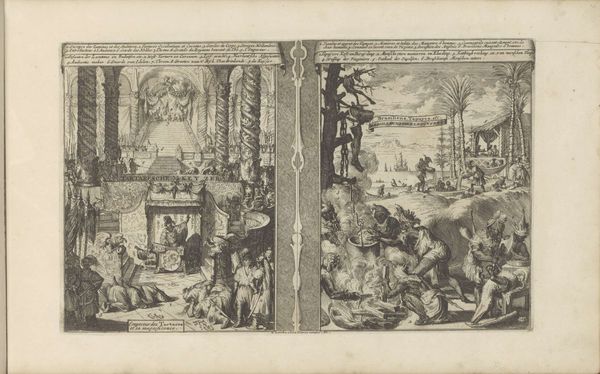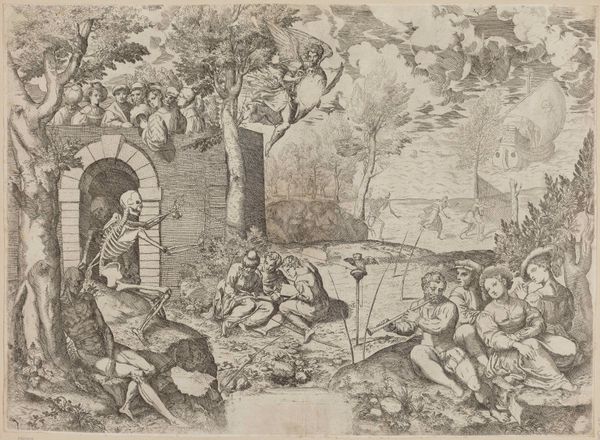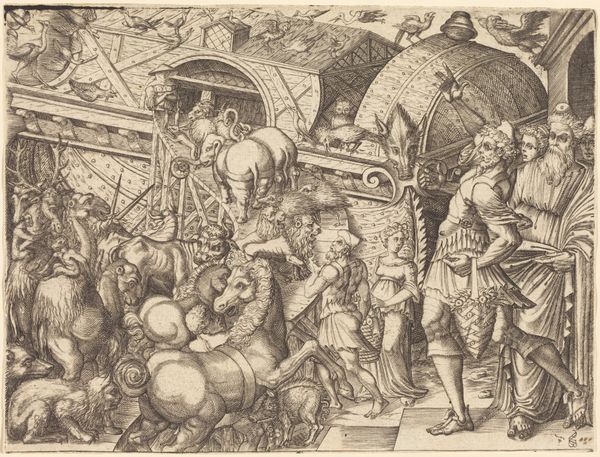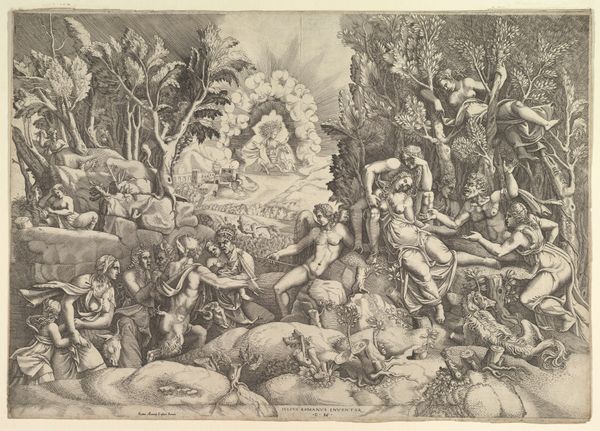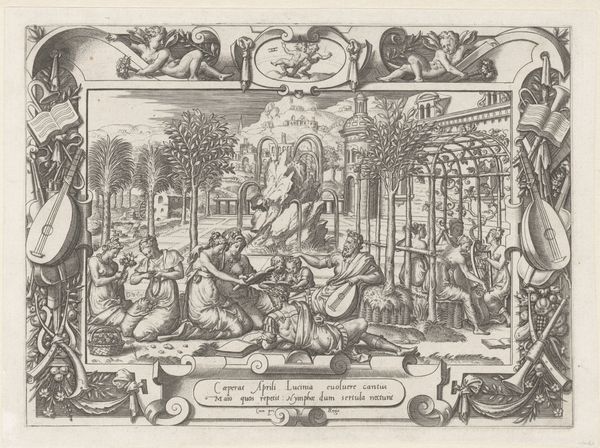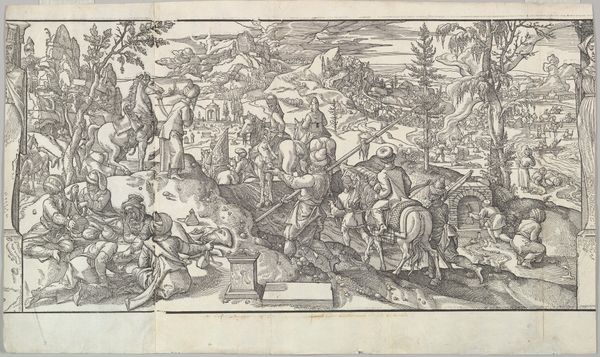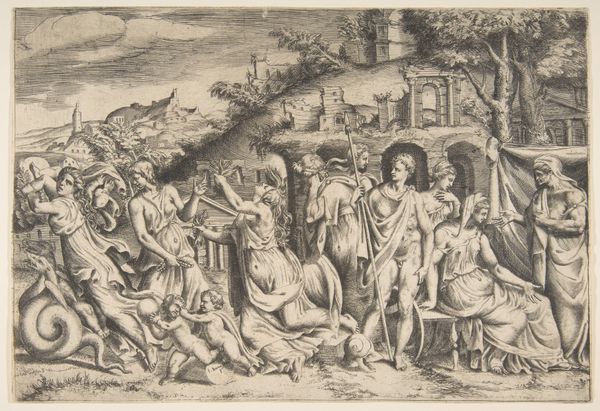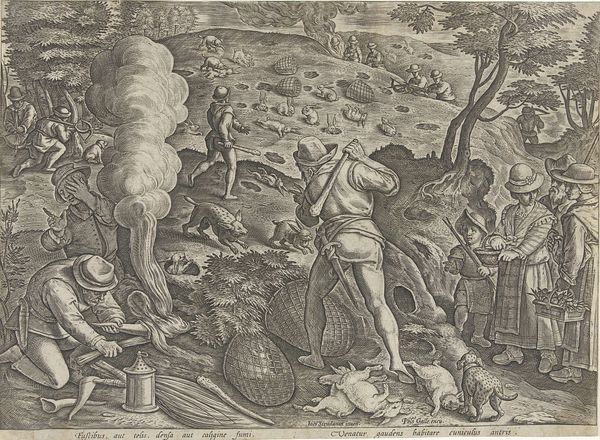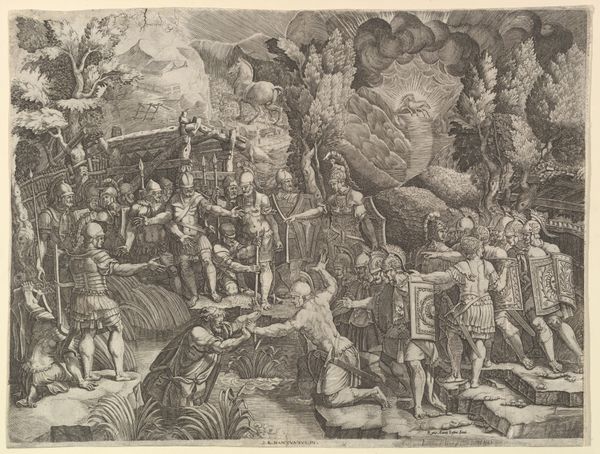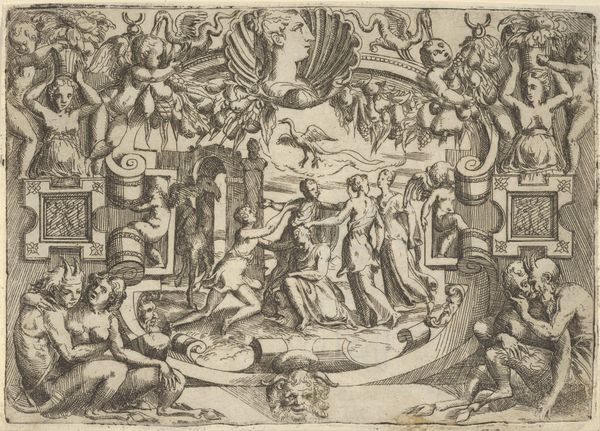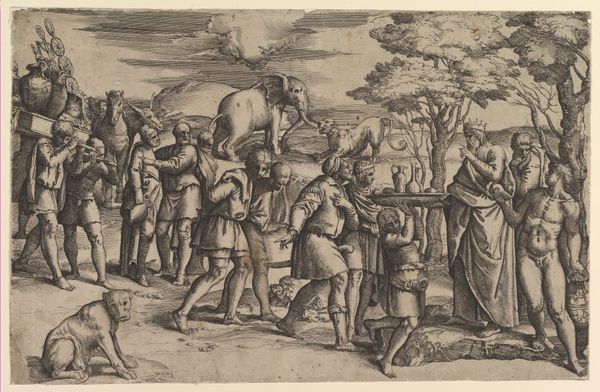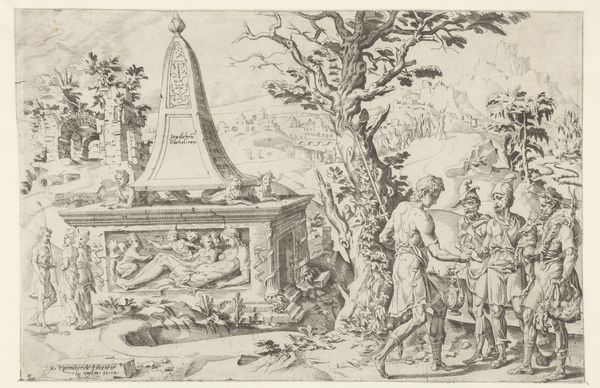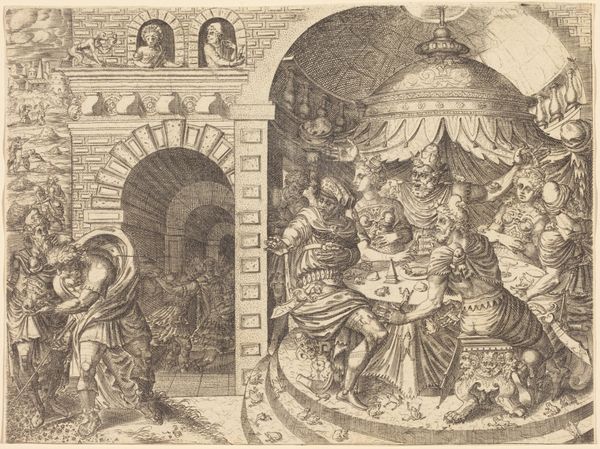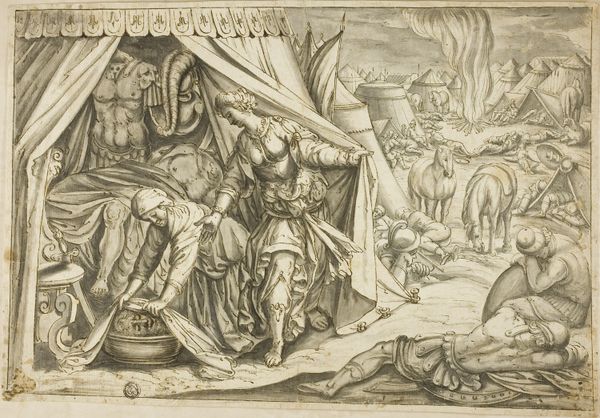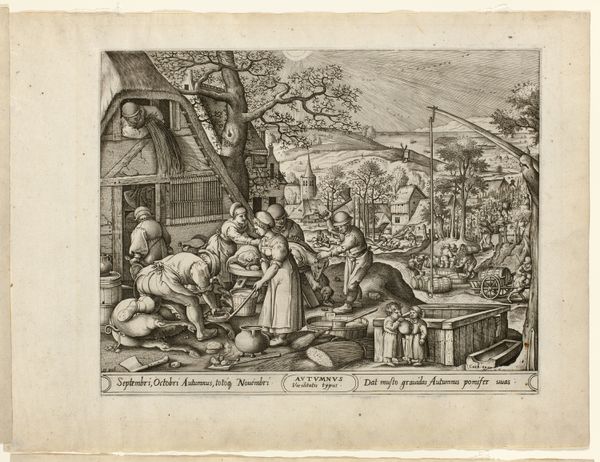
The Wedding of Cupid and Psyche (right panel) 1525 - 1566
0:00
0:00
drawing, print, engraving
#
drawing
#
allegory
# print
#
mannerism
#
figuration
#
history-painting
#
engraving
Dimensions: Sheet (Trimmed): 16 1/4 × 22 9/16 in. (41.2 × 57.3 cm)
Copyright: Public Domain
Battista Franco made this engraving, "The Wedding of Cupid and Psyche," in the mid-16th century in Italy. Mythological scenes like this one were popular among wealthy patrons, reflecting a revival of interest in classical antiquity during the Renaissance. But beyond the surface, we might ask what the image tells us about the social and cultural values of its time. Consider the opulence on display: the lavish spread of vases and plates, the elephant in the background, and the leisured gods lounging in the foreground. These details speak to the wealth and status of the intended audience. The wedding of Cupid and Psyche was an allegory, fashionable at the time, of the union of the soul with divine love. Analyzing Franco's image, especially in light of the social context, offers insight into the intricate relationship between art, power, and cultural values in Renaissance Italy. Art historians consult letters, diaries, and account books to shed light on the social conditions that shaped artistic production. The meaning of art is contingent on this historical context.
Comments
No comments
Be the first to comment and join the conversation on the ultimate creative platform.
